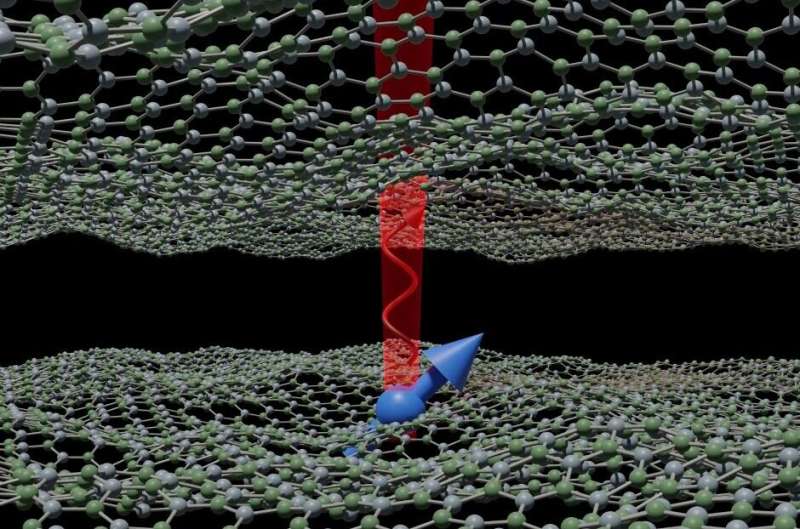Quantum bit in a two-dimensional layer consisting of the elements boron and nitrogen. Credit: University of Stuttgart
In an international collaboration, researchers at the University of Stuttgart were able to detect quantum bits in two-dimensional materials for the first time. Nature Materials publishes this research in its May 6, 2021 issue.
Quantum computers or quantum sensors consist of materials that are completely different to their classical predecessors. These materials are faced with the challenge of combining contradicting properties that quantum technologies entail, as for example good accessibility of quantum bits with maximum shielding from environmental influences. In this regard, so-called two-dimensional materials, which only consist of a single layer of atoms, are particularly promising.
Researchers at the new Center for Applied Quantum Technologies and the 3rd Institute of Physics at the University of Stuttgart have now succeeded in identifying promising quantum bits in these materials. They were able to show that the quantum bits can be generated, read out and coherently controlled in a very robust manner.
"There certainly is still a long way to go before these quantum bits can be used in quantum technology," says the head of the study and director of the 3rd Institute of Physics at the University of Stuttgart, Prof. Jörg Wrachtrup. "However, the properties found by the scientists are so convincing that they can trigger a new boost in quantum technologies."
More information: Single-spin resonance in a van der Waals embedded paramagnetic defect, Nature Materials (2021). DOI: 10.1038/s41563-021-00979-4
Journal information: Nature Materials
Provided by Universitaet Stuttgart
























